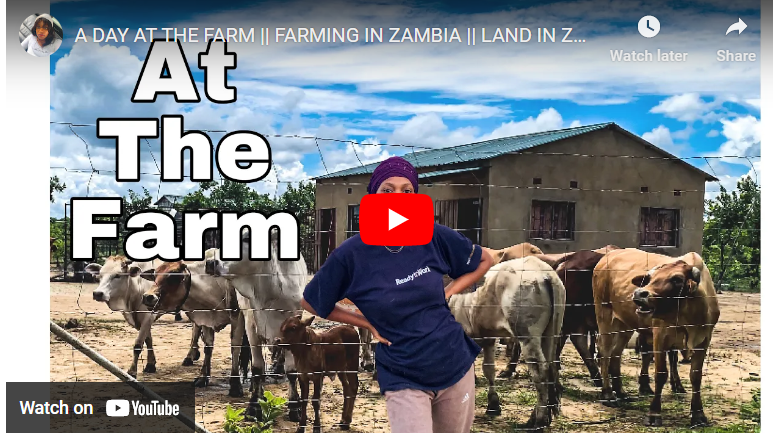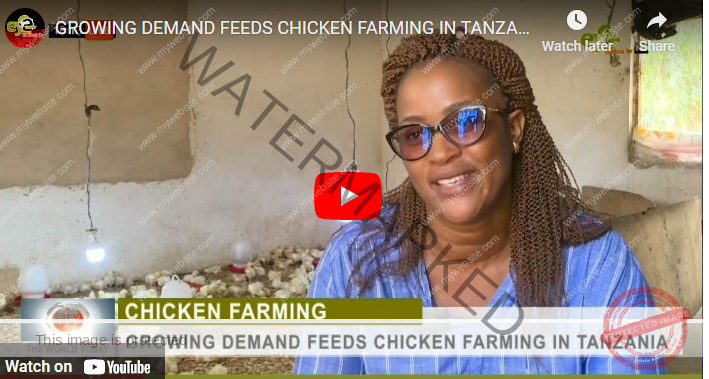The dairy industry in Kenya is not only crucial to the agricultural sector but also to the economy as a whole. The sector generates significant revenue and provides employment opportunities for many people, including small-scale farmers.
Dairy farming is a lucrative business due to the high demand for milk and other dairy products in Kenya and beyond. By identifying the top richest dairy farmers in Kenya, aspiring farmers can gain valuable insights into the factors contributing to their success.
So, the list of the richest dairy farmers in Kenya includes Naushad Merali, Elly Matende, Josephat K. Mugambi, Peter Kuguru, and William Kabogo.
In essence, understanding the success of top dairy farmers in Kenya can help improve the dairy industry and contribute to the growth of the economy.
Richest Diary Farmers In Kenya
Kenya is the largest producer of milk in East Africa, with an estimated 5 billion liters produced annually. The dairy industry is a critical sector of the economy, supporting millions of smallholder farmers and providing employment and income opportunities.
We will profile some of the top richest dairy farmers in Kenya and provide insights into their farming systems and success.
Read Also: Top 5 Richest Dairy Farmers In India
#1. Naushad Merali
Net Worth: $550 million
Naushad Merali is a successful Kenyan entrepreneur and philanthropist who has diversified business operations in various industries, including agriculture.
Naushad Merali owns a large dairy farm in Naivasha, Nakuru County, spanning over 1,200 acres of land with a herd of over 3,000 cows which made him the most successful diary Farmer in Kenya.
The farm utilizes modern facilities and technologies, including automated feeding and milking systems, a milk cooling plant, a feed mill, and a biogas digester.
Read Also: Richest Poultry Farmers In Uganda 2023 [Top 6 Ranked]
While his net worth is estimated to be around $550 million, primarily earned from his other business ventures, his dairy farm also contributes significantly to his wealth, producing over 40,000 liters of milk per day, sold to local processors and cooperatives.
#2. Elly Matende
Net Worth: $1.8 million
Elly Matende is a 35-year-old former pilot who became a successful dairy farmer in Kenya. Matende stumbled into the dairy farming business by accident when he inherited a small farm from his late grandfather. At the time, he had no farming experience or interest but decided to give it a try.
After some research and experimentation, he discovered that dairy farming had a lot of potential, and he gradually expanded his operations.
Today, Matende is a millionaire and one of the richest dairy farmers in Kenya, with a net worth estimated to be around KSh 200 million (approximately $1.8 million).
Read Also: Top 5 Richest Diary Farmers In South Africa
He owns a 60-acre farm in Eldoret, Uasin Gishu County, where he keeps over 100 dairy cows that produce over 1,000 liters of milk per day.
Matende also has a milk processing plant on his farm that produces yoghurt, butter, and cheese, which he sells under his brand, Elgon Kenya.
Matende’s success in the dairy farming business can be attributed to his innovative approach, hard work, and attention to detail.
He invested in modern facilities, such as a milk cooling plant, a feed mill, and a biogas digester, to improve his productivity and reduce his costs.
He also developed his own cattle breeding program, which focuses on selecting high-yielding and disease-resistant breeds.
Read Also: Top 10 Richest Diary Farmers In The World
#3. Josephat K. Mugambi
Net Worth: Not Publicly known
Josephat K. Mugambi is one of the richest dairy farmers in Kenya, with over 200 cows and a daily milk production of 5,000 liters.
Mugambi started his farming career in 1995 with just two cows and gradually expanded his herd through selective breeding and good management practices.
He also invested in high-quality feeds, such as silage and hay, and built a modern milking parlor with automatic milking machines.
Mugambi is also a member of the Kenya Cooperative Creameries, which provides him with a reliable market for his milk and value-added products.
Read Also: Top 5 Richest Famers In America
#4. Peter Kuguru
Net Worth: Not Publicly known
Peter Kuguru is another successful dairy farmer in Kenya, with a herd of over 400 cows and a daily milk production of 10,000 liters.
Kuguru started his dairy farming business in the 1990s and has since expanded his operations to include a feed mill, a milk processing plant, and a transport fleet.
He also invested in a biogas plant to generate energy from cow manure and reduce his carbon footprint.
Kuguru is also a member of the Githunguri Dairy Farmers Cooperative, which provides him with access to finance and technical support.
Read Also: Top 10 Richest Farmers In Africa
#5. William Kabogo
Net Worth: Not Publicly known
William Kabogo is a prominent Kenyan politician and businessman who also owns a successful dairy farm in Kiambu County.
Kabogo’s farm has over 300 cows and a daily milk production of 8,000 liters. He has invested in modern facilities, such as a milk cooling plant, a feed mill, and a biogas digester, to improve his productivity and reduce his environmental impact.
Kabogo is also a member of the Limuru Dairy Farmers Cooperative, which helps him market his milk and value-added products.
Successful Tips about the Richest Dairy Farmers in Kenya
The success of the richest dairy farmers in Kenya can be attributed to various factors, such as innovation, market knowledge, and access to finance.
Some of the successful tips that aspiring dairy farmers can learn from these farmers include:
Read Also: Top 12 Richest Farmers In Australia
- Investing in quality feeds and water to improve milk production and quality.
- Adopting modern farming techniques, such as artificial insemination and genetic improvement, to breed high-yielding cows.
- Building strong relationships with buyers and processors to secure better prices and markets.
- Joining cooperatives or forming partnerships with other farmers seeking access to finance and technical assistance from agricultural institutions and development organizations.
- Participating in training and extension services to improve their knowledge and skills in dairy farming.
- Diversifying their income sources by investing in other value chains, such as crop production, horticulture, or agroforestry.
- Building strong networks with other dairy farmers, industry associations, and policymakers to influence policy and promote the sector’s growth.
Type of System the Richest Dairy Farmers in Kenya Use
Dairy farming in Kenya is practiced using various systems, such as free-range, zero-grazing, and semi-intensive.
Free-range systems involve allowing cows to graze on natural pastures, while zero-grazing involves confining the cows in a stall and feeding them with cut grass and other feeds.
Semi-intensive systems combine both grazing and stall-feeding, allowing the cows to move between pastures and the stall.
Read Also: Top 5 Richest Farmers In Ghana
The type of system used by dairy farmers in Kenya depends on various factors, such as the availability of land, feed, and water, as well as the farmer’s preferences and resources.
The richest dairy farmers in Kenya use different farming systems, depending on their circumstances and goals.
For example, some farmers may prefer free-range systems for their low cost and natural feeding, while others may opt for zero-grazing to maximize milk production and control feeding.
Lucrativeness of Dairy Farming
Dairy farming is a profitable venture in Kenya, and there are several reasons for this. Firstly, there is a high demand for milk and other dairy products in Kenya, which means that there is a ready market for dairy farmers.
The country has a large population of over 50 million people, and milk is a staple food in many households.
This demand for milk is expected to grow as the population continues to increase, making dairy farming a lucrative business opportunity.
Secondly, dairy farming is a significant contributor to Kenya’s economy. Milk production is one of the country’s key agricultural activities, accounting for about 14% of the country’s agricultural GDP.
The dairy industry generates income for over 1.2 million farmers, who are engaged in dairy farming as their primary source of livelihood.
Additionally, the dairy industry also supports other industries, such as the animal feed industry, transport, and retail, which creates employment opportunities for many people.
Thirdly, dairy farming is particularly profitable for small-scale farmers. In Kenya, most dairy farmers are small-scale farmers who own a few cows and sell their milk to local markets or milk processing companies.
These small-scale farmers are the backbone of the dairy industry in Kenya and play a significant role in meeting the demand for milk and other dairy products.
The income generated from dairy farming provides a source of income for these farmers, which helps to improve their living standards.
10 Cow Dairy Farm Income In Kenya
A 10 cow dairy farm in Kenya can produce an average of 200 liters of milk per day, which translates to about 6,000 liters per month.
Assuming a milk price of Ksh 35 per liter, the monthly income from the farm can be Ksh 210,000.
However, the income may vary depending on factors such as milk yield per cow, milk price, feed costs, and other expenses.
Who Owns Delamere Farm Kenya
Delamere Farm Kenya is owned by Andrew Ndegwa, who is also the Chairman of the Kenya Tea Development Agency Holdings (KTDA).
The farm is located in Naivasha, Nakuru County, and spans over 20,000 acres of land. Delamere Farm is involved in various agricultural activities, including dairy farming, crop production, and livestock breeding.
Who Owns Brookside Dairy
Brookside Dairy is owned by the Kenyatta family, with President Uhuru Kenyatta being a major shareholder.
The company was founded in 1993 and has since become the largest dairy processor in Kenya.
Brookside Dairy collects milk from over 1.5 million farmers across the country and processes it into various dairy products, such as milk, yoghurt, butter, and cheese.
Brookside Dairy Net Worth
The net worth of Brookside Dairy is not publicly available as the company is a privately-owned entity.
However, it is estimated to be worth hundreds of millions of dollars, considering its dominant position in the Kenyan dairy industry.
Successful Dairy Farmers In Kenya
Some of the successful dairy farmers in Kenya include:
- Peter Kamau, who runs a dairy farm in Kiambu and produces over 1,000 liters of milk per day.
- Kennedy Muriuki, who owns a dairy farm in Embu and has over 100 cows.
- Jane Njuguna, who runs a dairy farm in Nyeri and produces over 600 liters of milk per day.
- Peter Gitau, who owns a dairy farm in Murang’a and has over 200 cows.
10 Cow Dairy Farm Income Per Month
As mentioned earlier, a 10 cow dairy farm in Kenya can produce an average of 200 liters of milk per day, which translates to about 6,000 liters per month.
Assuming a milk price of Ksh 35 per liter, the monthly income from the farm can be Ksh 210,000.
However, the income may vary depending on factors such as milk yield per cow, milk price, feed costs, and other expenses.
Where To Buy Dairy Cows In Kenya
Dairy cows can be bought from various sources in Kenya, including:
- Livestock auctions, such as Kibiko Livestock Market in Ngong and Kariokor Market in Nairobi.
- Farmers’ cooperatives, such as the Kenya Dairy Farmers Federation (KDFF) and the Kenya Cooperative Creameries (KCC).
- Private dairy farms that sell breeding stock and replacement heifers.
List Of Dairy Farms In Kenya
Some of the notable dairy farms in Kenya include:
- Delamere Farm Kenya
- Tegemeo Dairy Farm
- Wakulima Dairy Limited
- Githunguri Dairy Farmers Cooperative Society
- Kinangop Dairy Farm
- Brookside Dairy Farm
- Karirana Dairy Farm
- Sameer Agricultural & Livestock Limited
- Happy Cow Farm
- Molo River Dairy Farm.
Conclusion
Dairy farming is a challenging but rewarding sector in Kenya, with many opportunities for smallholder farmers to improve their livelihoods and contribute to the country’s economic development. The richest dairy farmers in Kenya have shown that with the right farming systems, innovative techniques, and market knowledge, it is possible to succeed and become wealthy in this sector.



